From The Guardian (21 September 2002). I continue to find it frustrating that almost sixteen years later, what I regard as Kiarostami’s two best shorts, Two Solutions for One Problem (1975) and Orderly or Disorderly (1981), still aren’t available on any DVD or Blu-Ray (although Scott Perna has just emailed to remind me that the former can at least be accessed on YouTube). The principal reason was that Kiarostami himself didn’t like them. He once told me that even the second of these was made before he regarded himself as a film artist — something I continue to find baffling, and astonishing. But now that Criterion has announced that it will be restoring and releasing all his films, this lack of availability will apparently change. — J.R.
The eight short films made by Abbas Kiarostami between 1970 and 1982 offer an interesting riposte to critics who claimed during those years that they knew what was going on in world cinema. Even in Iran, where the shorts were made, none constituted much of an event. And considering how deceptively modest they are, they probably never would have attracted much notice anywhere if their director hadn’t gone on to make a string of masterful features over the past 15 years (the most recent of which, Ten, is about to open here). Read more
From the August 23, 1991 Chicago Reader. This review is also reprinted in my first collection, Placing Movies (1995). — J.R.
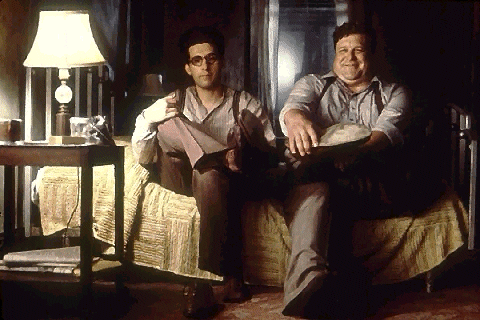
BARTON FINK
*** (A must-see)
Directed by Joel Coen
Written by Ethan Coen and Joel Coen
With John Turturro, John Goodman, Judy Davis, Michael Lerner, John Mahoney, Tony Shalhoub, and Jon Polito.

I’m not one of the Coen brothers’ biggest fans. I walked out of Blood Simple, their first feature. The main sentiment I took away from Raising Arizona and Miller’s Crossing — their second and third efforts, both of which I stayed to the end of — was that at least each new Coen brothers movie was a discernible improvement over the last. Raising Arizona may have had some of the same crass, gratuitous condescension toward its country characters as Blood Simple, but it also had a sweeter edge and more visual flair. In both craft and stylishness, Miller’s Crossing was another step forward, and even if I never really believed in either the period ambience or the characters — the dialogue bristled with anachronisms, and Albert Finney’s crime boss seemed much too blinkered and naive for someone who was supposed to be ruling a city — the film nevertheless demanded a certain attention. Read more
From the July 29, 1988 Chicago Reader. — J.R.
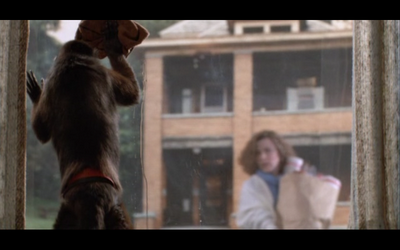
MONKEY SHINES: AN EXPERIMENT IN FEAR
*** (A must-see)
Directed and written by George A. Romero
With Jason Beghe, John Pankow, Kate McNeil, Joyce Van Patten, Christine Forrest, Stephen Root, Stanley Tucci, and Janine Turner.
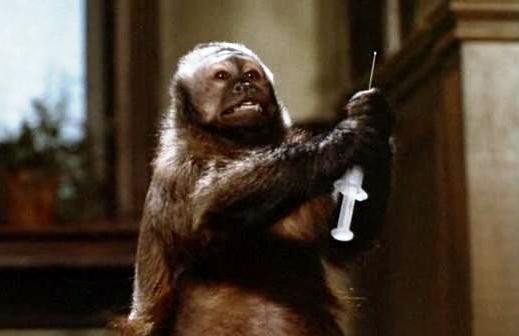
You’ve got to get through a few layers of foam rubber before you reach what’s good (or better than good) about George Romero’s new feature. There’s a series of obstacles — cultural, corporate, ideological, stylistic, aesthetic, commercial — standing in the way of what the movie is doing at its best; they may not count for much in the long run, but it’s better to be forewarned and forearmed.
First there’s the problem of the title. I appreciate that the producers did not want to suggest that the movie is a comedy — as sticking to the title of Michael Stewart’s source novel, Monkey Shines, would have done. So a subtitle is understandable as a means of labeling the contents. But An Experiment in Fear? Whose experiment and whose fear? The phrase describes nothing in the film (except for a brief undeveloped scene with a rodent and a beady-eyed behaviorist) and nothing you can say about the film (except as an easy platitude). Read more
From the December 7, 2001 Chicago Reader. — J.R.
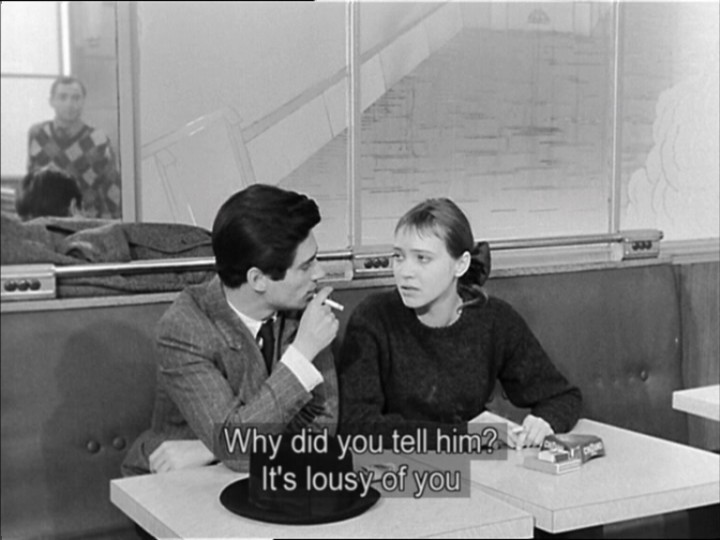
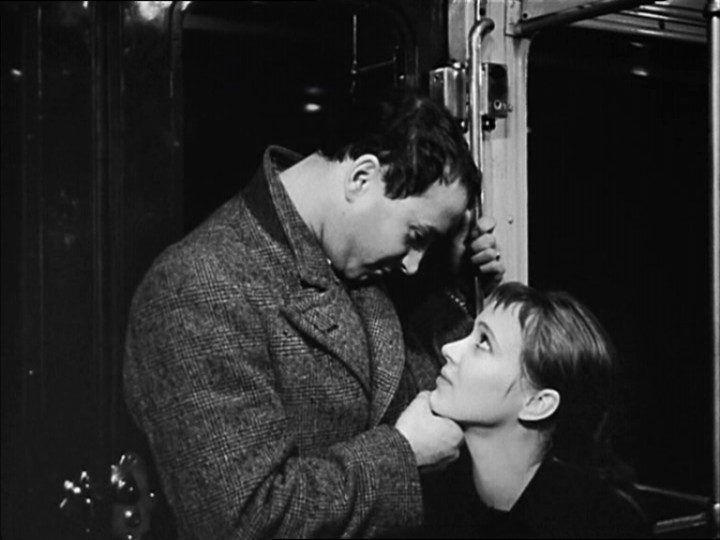
Band of Outsiders
Rating **** Masterpiece
Directed and written by Jean-Luc Godard
With Anna Karina, Claude Brasseur, Sami Frey, Daniele Girard, Louisa Colpeyn, and Ernest Menzer.
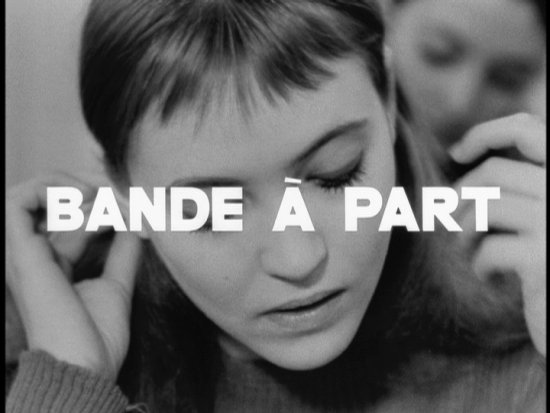
To gauge the historical significance of Jean-Luc Godard’s Band of Outsiders (1964) — getting a week’s run in a lovely new print at the Music Box — it helps to know that it was made four years after François Truffaut’s Shoot the Piano Player and three years before Arthur Penn’s Bonnie and Clyde. Both Band of Outsiders and Shoot the Piano Player are low-budget black-and-white French thrillers adapted from American crime novels translated into French for the celebrated Serie Noire collection, and they were abject box-office flops on both sides of the Atlantic — though today they embody the glories of the French New Wave in a good many people’s minds. By contrast, Bonnie and Clyde, a Hollywood movie in color that was profoundly influenced by these two films, was a huge success, and its lyrical depictions of violence changed the direction of American cinema.
All three films are mixtures of tragedy and farce, violence and romance, with an uncertain emotional tone. When Band of Outsiders and Shoot the Piano Player were first released, audiences didn’t know what to make of this mix, but when they saw Bonnie and Clyde they were exhilarated by its ambiguities. Read more







